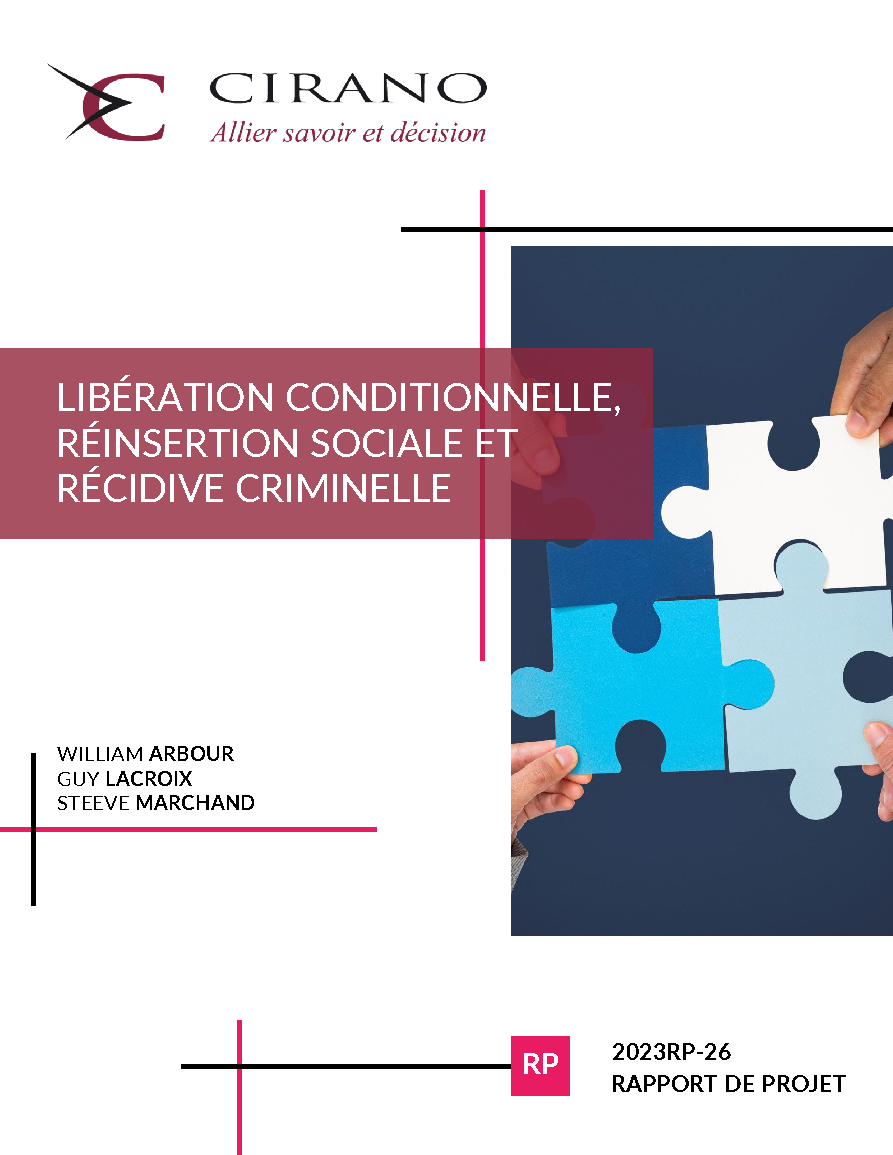Libération conditionnelle, réinsertion sociale et récidive criminelle
In Quebec, offenders sentenced to more than six months are eligible for parole once they have served one-third of their sentence. About half of eligible offenders choose to waive their right to attend a parole hearing. Why?
Based on robust and innovative empirical strategies and a rich body of data on thousands of offenders in Quebec, the authors identify the key determinants of the choice to waive the right to attend a parole hearing. Their analyses reveal that renunciation is strongly influenced by the individual characteristics of the inmate, its criminogenic profile and the nature of the crime committed. The study also shows that inmates who give up a hearing would have had more conditions to meet than those who were actually released on conditions.
The authors are also interested in the causal effect of parole on criminal recidivism by focusing on the recidivism of individuals “on the margins”, that is, individuals for which the granting of release was primarily determined by the history of the decisions of the members before whom they were to appear. For these individuals, parole reduces both the current and future incarceration time of these individuals, while reducing the likelihood of reoffending within five years of their release.
While there is a growing body of evidence suggesting that parole can prevent reoffending, we know very little about the contexts in which it is appropriate and the practices of release that ensure success. This study is the only study conducted in Quebec that provides a thorough understanding of the mechanisms at work and draws strong conclusions. The study is based on exclusive administrative data from the Department of Public Safety over 10 years and multivariate regression and machine learning methods.




